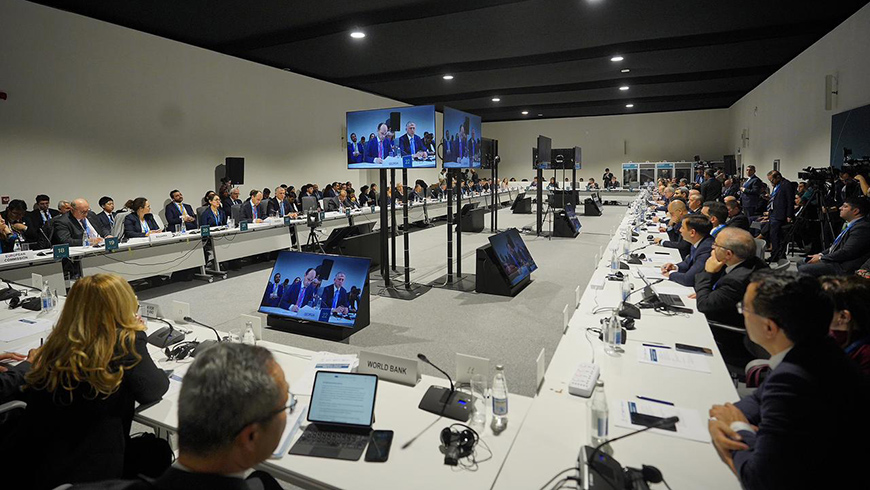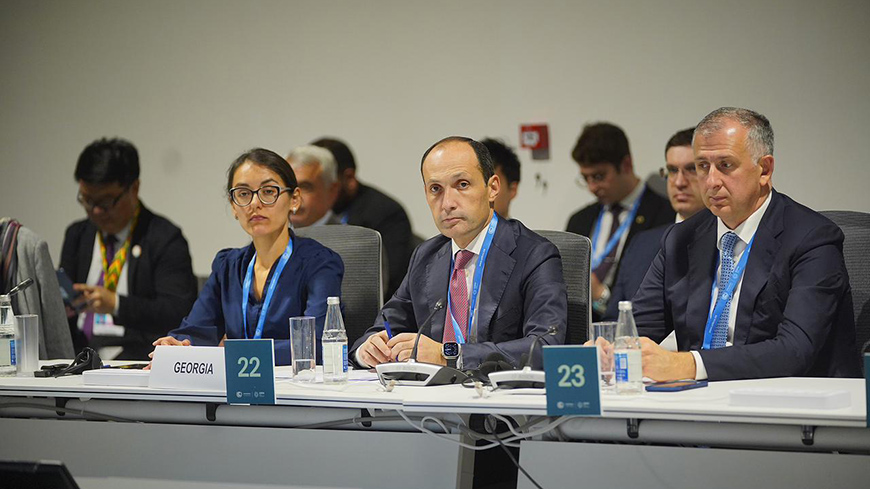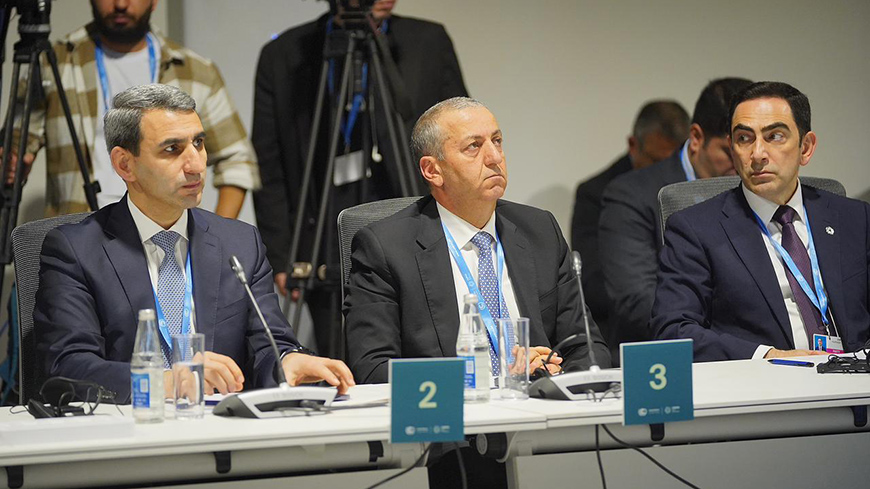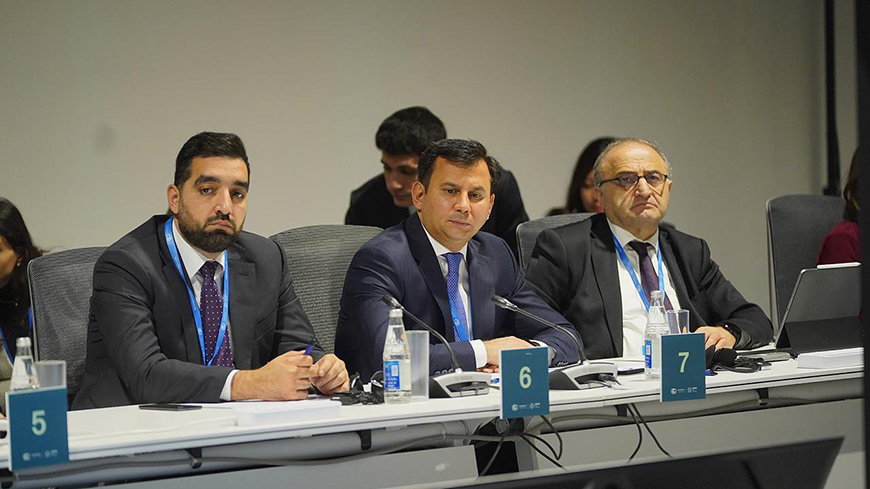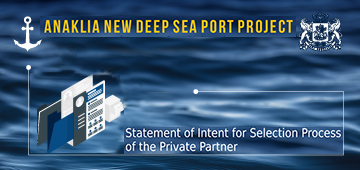
- Home
- MEDIA CENTER
- News
First Vice Prime Minister, Minister of Economy and Sustainable Development Levan Davitashvili is participating in the ongoing ministerial – Sustainable and Digital Development in the Middle Corridor and Beyond, which was held in Baku, Azerbaijan. Speaking at the event, Levan Davitashvili spoke about the growing importance of the Middle Corridor and Georgia’s role as a key linker between Europe and Asia.
As the Minister noted, the priority of the Georgian government is to increase the sustainability and resilience of the Middle Corridor, including through improving infrastructure.
The Ministerial was held within the UNFCCC COP29 while the organizers of the event were the Ministry of Digital Development and Transport of the Republic of Azerbaijan, the United Nations Economic and Social Commission for Asia and the Pacific (ESCAP) and the United Nations Economic Commission for Europe (ECE). The event brought together representatives of the countries participating in the Middle Corridor route and the European Union, as well as international organizations. Participant discussed the current progress, prospects for further development and future initiatives in the direction of sustainability and digitalization within the Middle Corridor and beyond. In particular, during the roundtable discussion, representatives of the countries of the region talked about the issues important for the development process of the Middle Corridor including development of green and resilient infrastructure, reduction of freight transport emissions, transport innovations and digitalization, the potential role of smart transport systems, automation and artificial intelligence in ensuring green and flexible transport connectivity, etc.
The First Vice Prime Minister of Georgia introduced his colleagues to the current situation in the country's transport and logistics sector, growth dynamics, and the progress of specific projects important for the functioning of the Middle Corridor.
“Georgia’s transport and logistics sector has experienced tangible growth in recent years, with a 36% year-over-year increase in 2022 and a 13% growth in 2023. Georgia’s international traffic flows are also on the rise, reaching 27 mln tons last year. At the same time, the transport sector remains one of the biggest contributors to greenhouse gas emissions, indicating the need for further efforts to make the sector greener” – Levan Davitashvili noted.
Minister of Economy and Sustainable Development highlighted the initiatives facilitating the development of railway transportation through the Middle Corridor. In particular, Davitashvili stressed on the Railway Modernization and Baku-Tbilisi-Kars Railway line since the both greatly enhance the competitiveness of rail shipments, considered to be one of the most environmentally friendly modes of transportation. The Railway modernization is approaching completion which shall improve the operational efficiency of the main railway line while increasing the annual capacity from 27 mln to 48 mln tons.
“Moreover, the construction of the East-West Highway is well underway, with 70% of the sections already open to traffic. The new roads are designed to comply with European road safety standards. Moreover, intelligent transport systems are being implemented to further enhance road network performance and management. Of strategic importance is the Anaklia Deep Sea Port project, which will have a capacity to handle at least 600,000 TEUs in its first phase. The port will be equipped with state-of-the-art technologies and facilities meeting modern requirements,” – First Vice Prime Minister added.
Levan Davitashvili also emphasized that Georgia is a party to many UN agreements and conventions, which confirms its goal of being in line with international transport standards and best practices. In addition, he reaffirmed his readiness for close cooperation with partner countries, which will make the Middle Corridor more sustainable, reliable and attractive.
- SERVICES
- Inventory of Licenses and Permits
- Tourism
- Communication, Information and Modern Technologies
- National Quality Infrastructure
- ECONOMIC POLICY
- SME Development Strategy of Georgia
- Foreign Trade
- Energy
- Transport
- Communications, Information and Modern Technologies
1403
2 99 11 11
2 99 11 61
2 99 11 70


